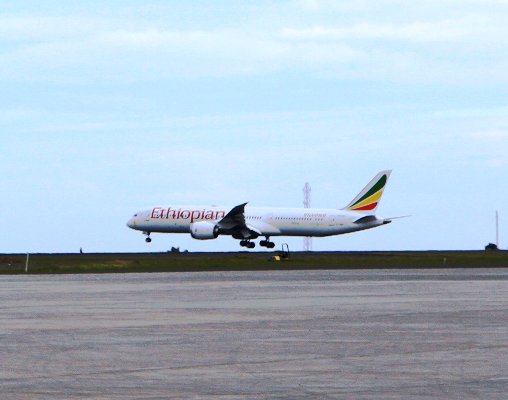Ethiopian Airlines Group has almost doubled its cargo capacity and deferred two months of plane-lease payments to help navigate the aviation crisis caused by the Covid-19 outbreak.
Africa’s biggest airline has converted 11 passenger planes to transport goods, adding to an existing fleet of 10 Boeing Co. 777 and two 737 freighters, Chief Executive Officer Tewolde GebreMariam said in an interview. The state-owned carrier has added new cargo destinations in South America, China and Europe and is transporting two planes of cut flowers to the latter continent every day.
“There are new opportunities that are emerging due to the huge investment we have done — we have huge cargo capacity,” the CEO said. “Under the circumstances, Ethiopian Airlines is doing well.”
The closing of borders around the world has put airlines from the U.S. to Australia in jeopardy, and governments have committed at least $85 billion in support of their national carriers to date. Ethiopian is on track to lose almost $1 billion in ticket sales in the 12 months through June thanks to the grounding of almost all its passenger flights, but it hasn’t yet needed to call on its state owner for direct funding despite vocal government support.
“The survival of this airline is key for Ethiopia,” Prime Minister Abiy Ahmed said last week. “Ethiopian Airlines is our connection to the outside world. It is our port, it is our Red Sea, it is our ocean.”
Payments due for grounded leased planes, which account for nearly half of the fleet, have been deferred by two months to June, Tewolde said, adding that plane purchases and deliveries have been suspended. The government is helping to negotiate with China and international financial institutions about a restructuring of debt repayments, the CEO said.
Ethiopian remains in talks with Boeing about compensation following a fatal crash in March of last year, which led to the grounding of the Max jet. Tewolde reiterated that, should the plane resume flying, Ethiopian will be the last carrier to use it.





